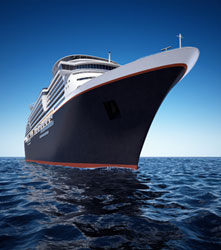Improving passenger comfort on ships
Motion sickness affects many passengers when they travel, causing them to experience dizziness, fatigue and nausea, altogether contributing to an unpleasant experience when they travel by ship. When assessing the possible criteria for comfort standards and the overall well-being of the passenger, this needs to be taken into consideration. This research, performed by the Classification Society in Germany, sought to assess the up until now unexamined factor of low-frequency whole body vibration when on board. From this, a comprehensive categorisation of comfort criteria could be composed. The investigation made up part of the COMPASS project. The project's main aim was to update research carried out on motion-sickness in line with today's standards and the advancements in the technology used on ships. As it stands, passenger ships designed to be able to operate even in adverse weather conditions are not operating to their full capability. This is because they are not able to meet acceptable standards for passenger health and safety all year round. The European shipping industry as a whole would therefore benefit from the project's goal, which was to develop a motion sickness prediction model dedicated to passenger comfort on sea transportation. The report stated that there are five categories of comfort criteria that can be controlled. These are: accommodation design, lighting, noise and high and low-frequency whole body vibration. Low-frequency whole body vibration is caused by ship motions and, as well as causing discomfort for passengers, also causes degradation of motor tasks. Recommendations made acknowledged that it is in the interest of consumers for there to be an established standard to measure their well-being. The standard needs to be based on rational criteria for human comfort, which serve to establish guidelines for rule development and make way for specifying rating levels of acceptability. These standards could be based on categories of passenger motion comfort, defined on a scale of: pleasant, acceptable and uncomfortable.



